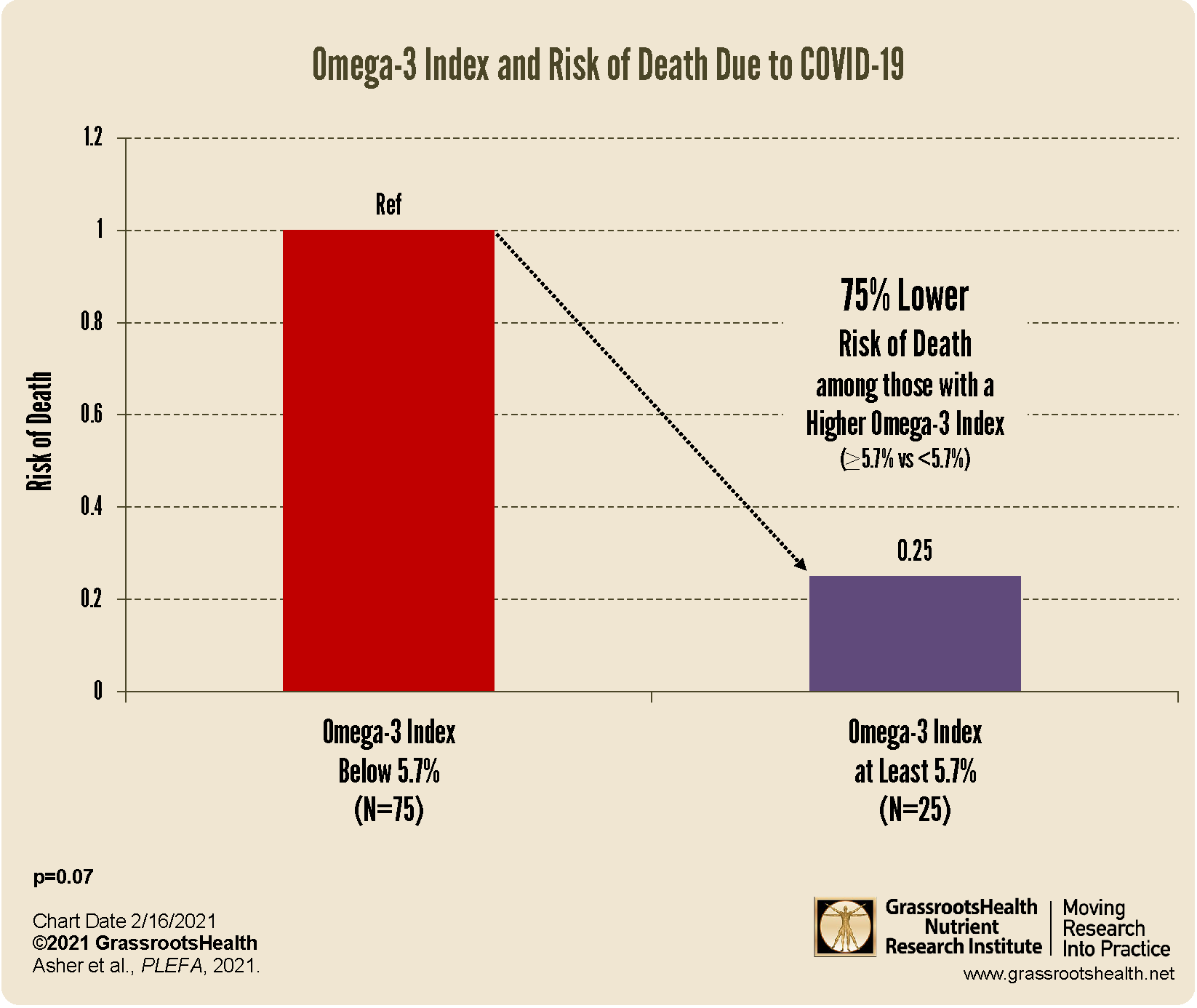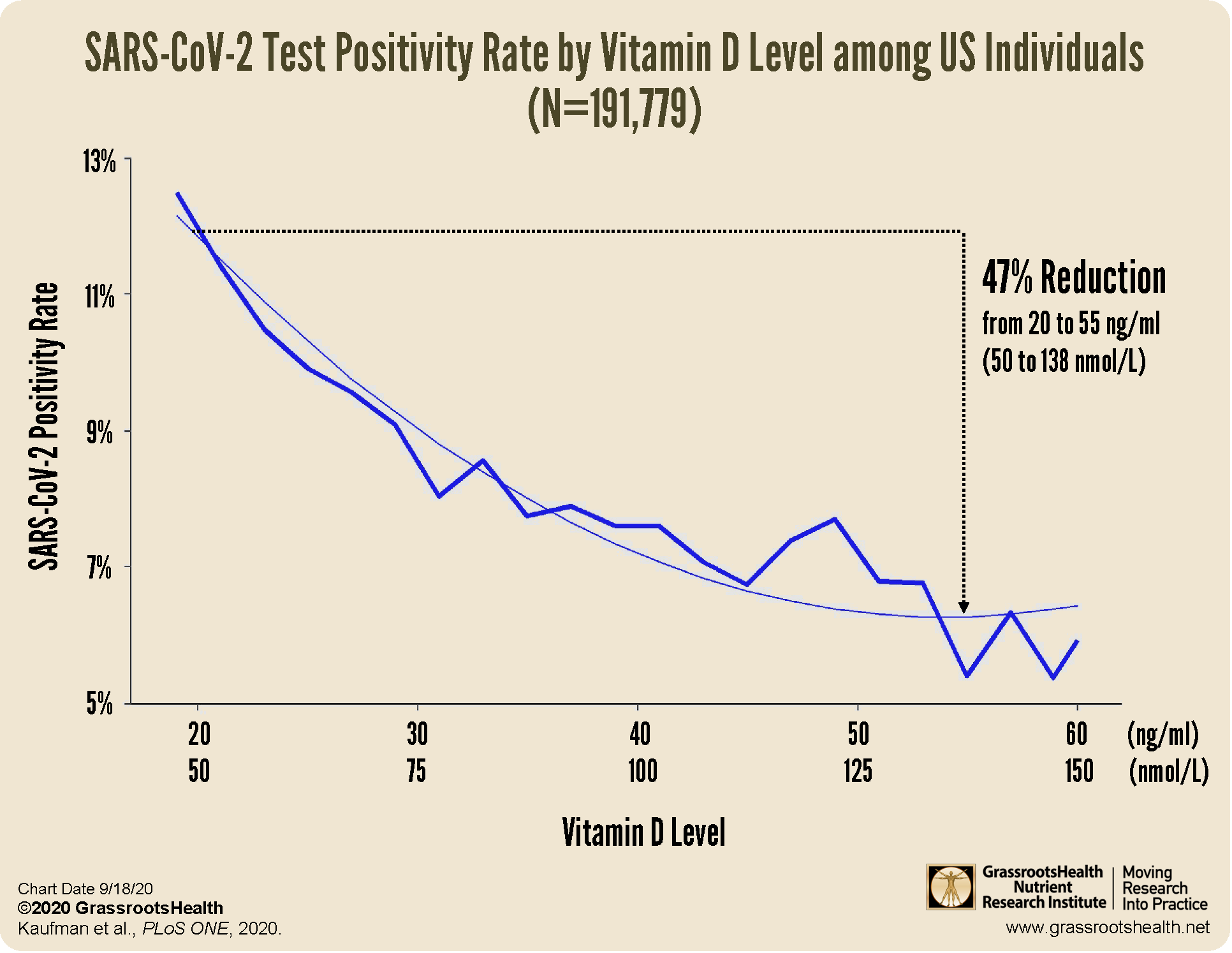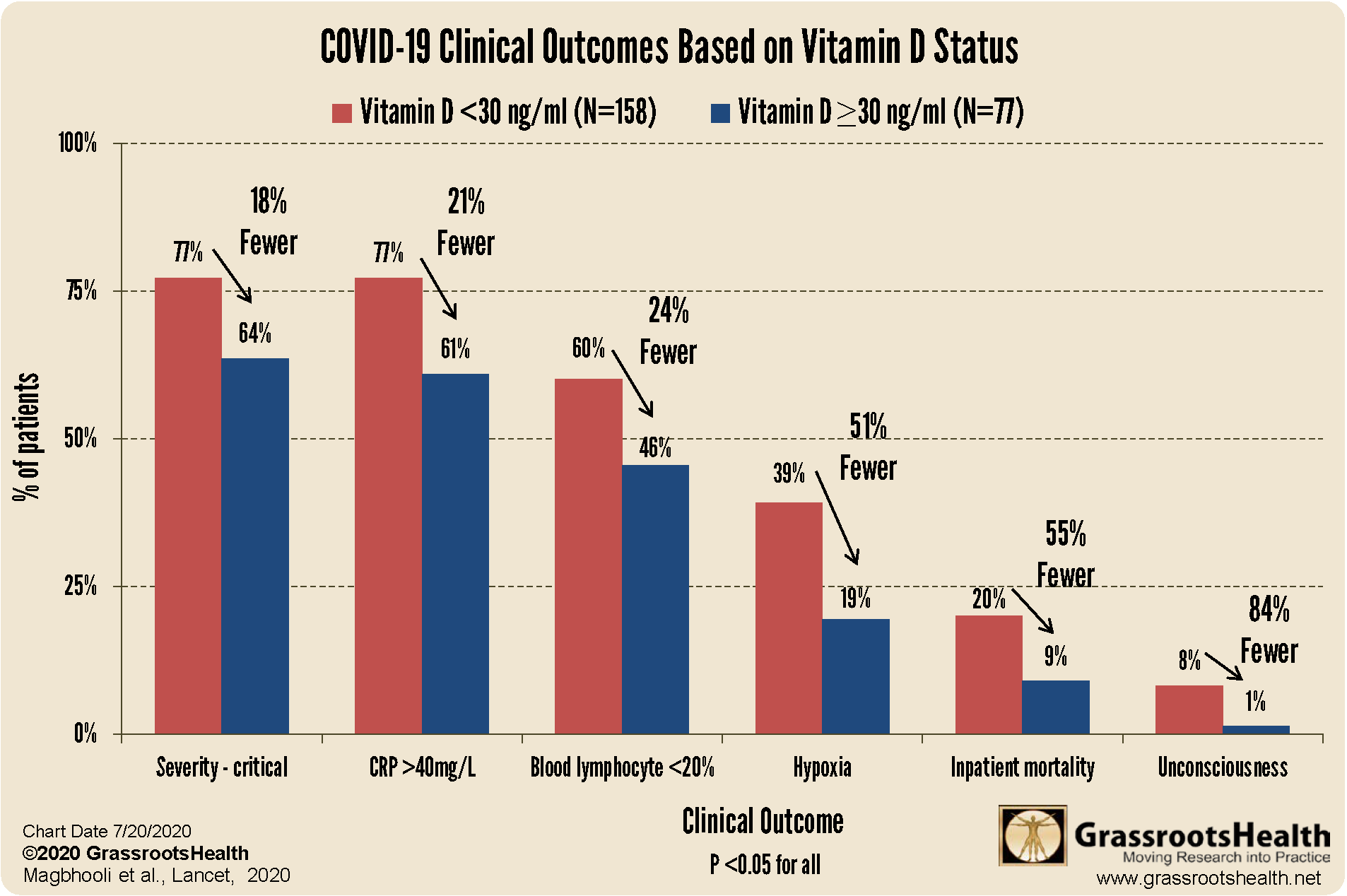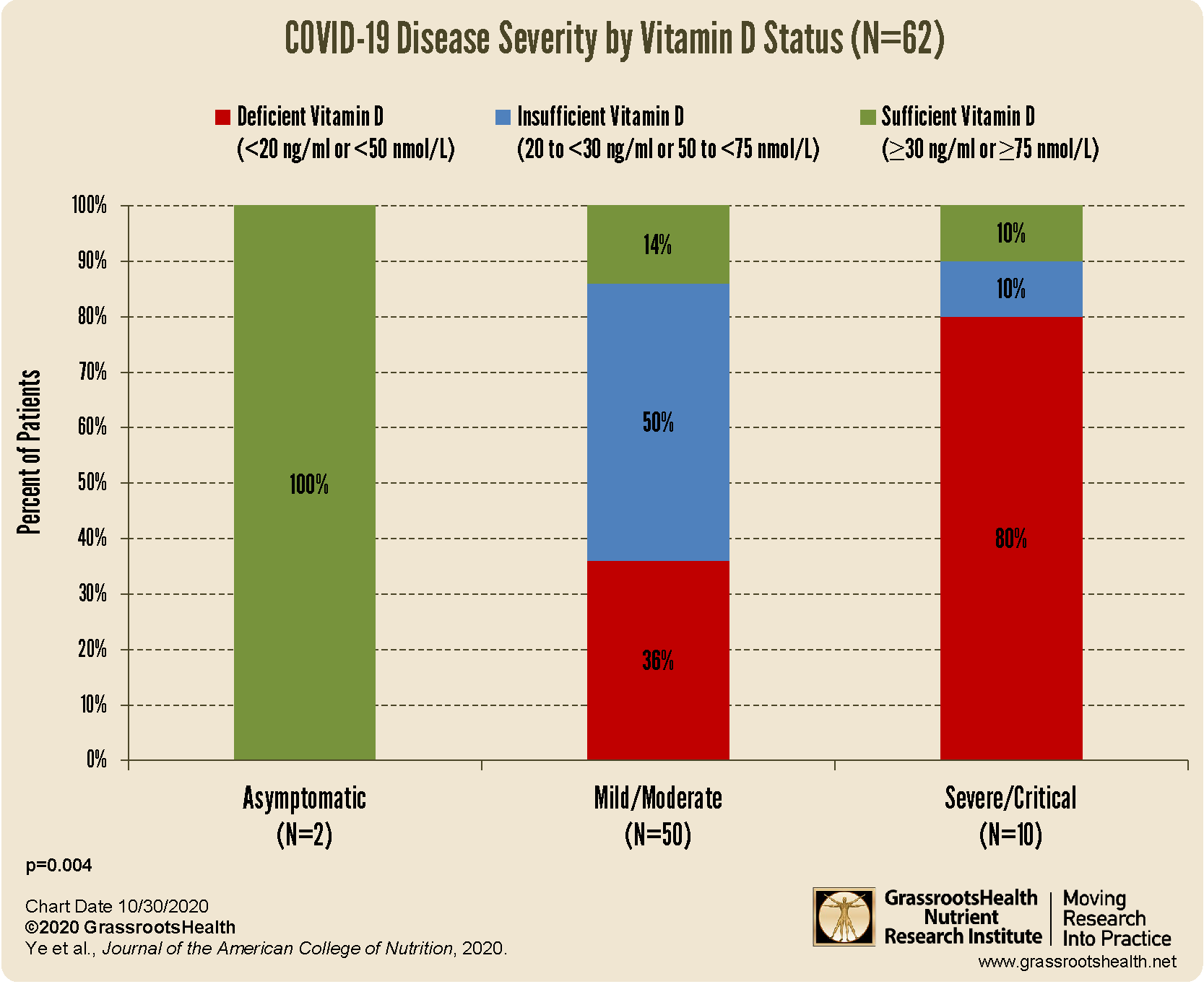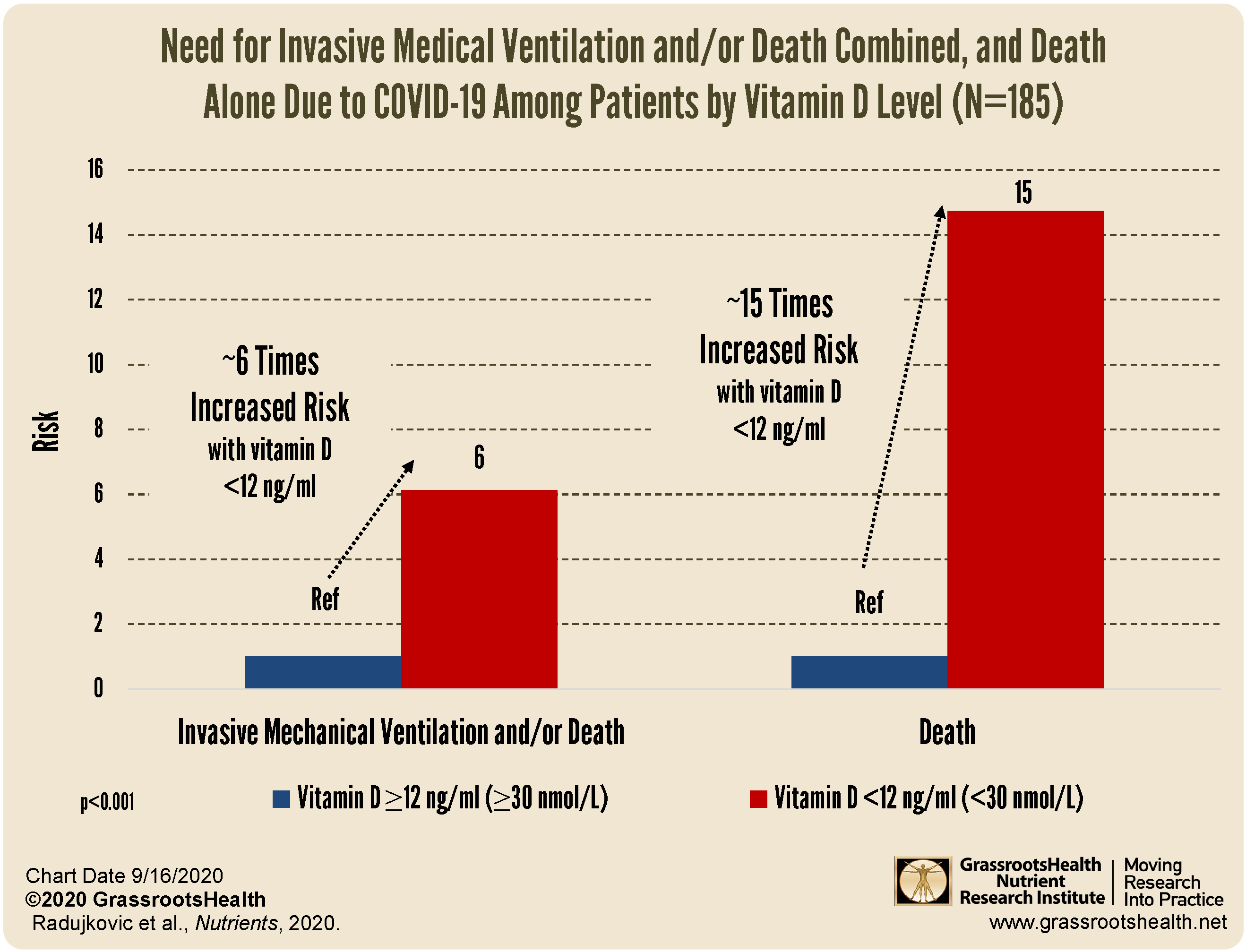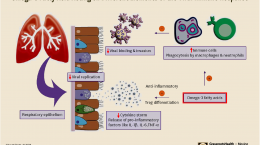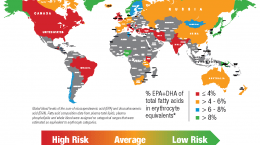Published on February 17, 2021
Pilot study shows reduced risk of death due to COVID-19 among individuals with higher Omega-3 Index
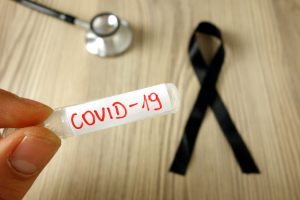 Omega-3 fatty acids deserve much attention for their health benefits across all ages, from lowering the risk of death from heart disease and breast cancer, to improving mental health and learning disabilities, and even decreasing the risk of overall mortality.
Omega-3 fatty acids deserve much attention for their health benefits across all ages, from lowering the risk of death from heart disease and breast cancer, to improving mental health and learning disabilities, and even decreasing the risk of overall mortality.
In studies using a measurement called the Omega-3 Index test [which measures the amount of two very important omega-3 fatty acids EPA (eicosapentaenoic acid) and DHA (docosahexaenoic acid) in the red blood cell membranes], individuals with a low Omega-3 Index were shown to have a 10-fold higher risk of death compared to those with a high index. An Omega-3 Index between 8% and 12% was associated with lower risk of death from cardiovascular disease, versus an index less than 4%.
Unfortunately, omega-3 deficiency is a fast-evolving global health concern, with 80-90% of the world’s countries and regions having average levels considered low or very low.
How Could Your Omega-3 Status Affect Your Response to COVID-19?
The hyper-inflammatory state referred to as the “cytokine storm” is the leading theory that explains why some people have a severe reaction to coronaviruses while others only experience mild symptoms. Moderate levels of inflammation are associated with mild-moderate symptoms of COVID-19, whereas higher levels of inflammation are associated with more severe COVID-19 symptoms and death. We have previously discussed the roles of omega-3s in lowering inflammation and working with omega-6 fatty acids to maintain the balance of inflammation in the body. Besides its effect on inflammation, omega-3 fatty acids are also important for improving the immune response through the activation of certain immune cells. We also recently discussed the anti-inflammatory, immune-modulating, and potential antiviral roles of omega-3s and how they may contribute to the prevention of and response to COVID-19 disease.
Today we are excited to share findings from the first study published to analyze actual COVID-19 patient data to determine whether omega-3 status was related to the risk of death from COVID-19 disease.
Study Shows Lack of Omega-3s May Contribute to the Risk of Death from COVID-19
This small pilot study was published by Asher et al., and included 100 hospitalized COVID-19 patients whose blood was taken within ten days of diagnosis. The Omega-3 Index was measured, as it is considered the best indicator of omega-3 status.
Among the 100 patients, the average Omega-3 Index was 5.09% and the median was 4.75% – both much lower than the recommended Omega-3 Index of at least 8%. Participant data was broken down into quartiles based on Omega-3 Index (Q1 at < 4%, Q2 at 4-4.7%, Q3 at 4.7-5.7%, Q4 at ≥5.7%).
When analyzing data between the highest quartile (with an Omega-3 Index of at least 5.7%, N=25) and the lowest quartiles (with an Omega-3 Index of below 5.7%, N=75), the authors found that the risk of death due to COVID-19 was approximately 75% lower in the group with the highest Omega-3 Index compared to those in the lower Omega-3 Index groups. The p-value for this finding was 0.07, which is slightly higher than what is considered statistically significant (p=0.05). However, this could be expected for two main reasons – the overall number of patients included in the study was too low for statistical significance in the first place, and the number of patients with a higher Omega-3 Index was also too low. Keep in mind that none of the quartiles used for analysis included only individuals with an Omega-3 Index at or above 8% – the minimum level recommended by GrassrootsHealth.
Of note, an interesting finding among the unadjusted data was that the risk of death associated with having a low Omega-3 Index appeared to be at least as predictive as the risk for those who were 10 years of age older!
What Could We Discover with More Data?
This small study shows a strong trend that suggests a protective effect of omega-3 fatty acids against death due to COVID-19. Could there be even greater, significant findings if we were to look at a larger set of data that included more individuals whose Omega-3 Index was 8% or higher?
Do You Know Your Omega-3 Index?
Find out where your Omega-3 Index level is while contributing to one of the world’s largest nutrient field trials – and help us answer that question and more about how omega-3s, vitamin D, and other essential nutrients can benefit our health.
By joining the GrassrootsHealth projects, you are not only contributing valuable information to our study, but you are also gaining knowledge about how you could improve your own health through measuring and tracking your nutrient status, and educating yourself on how to improve it. Do you know what your status of vitamin D, omega-3s, and other essential nutrients is? Could your levels be improved? Test now to find out!
 We now have a NEW GIFTING SERVICE that allows you to quickly send ‘Gift Cards’ to friends, family and coworkers who you consider might need immediate access to testing, and to Claim the Joy of Your Health TODAY. Give the gift today!
We now have a NEW GIFTING SERVICE that allows you to quickly send ‘Gift Cards’ to friends, family and coworkers who you consider might need immediate access to testing, and to Claim the Joy of Your Health TODAY. Give the gift today!
What does the Research Say about Vitamin D & COVID-19?
It’s TIME to start saving lives! If you can help PREVENT the majority of the death, it’s time! What’s it costing you/us not to take action NOW?
There is much published research that supports a clear link between vitamin D and COVID-19 showing that higher vitamin D levels are related to:
a decreased risk of testing positive for COVID-19
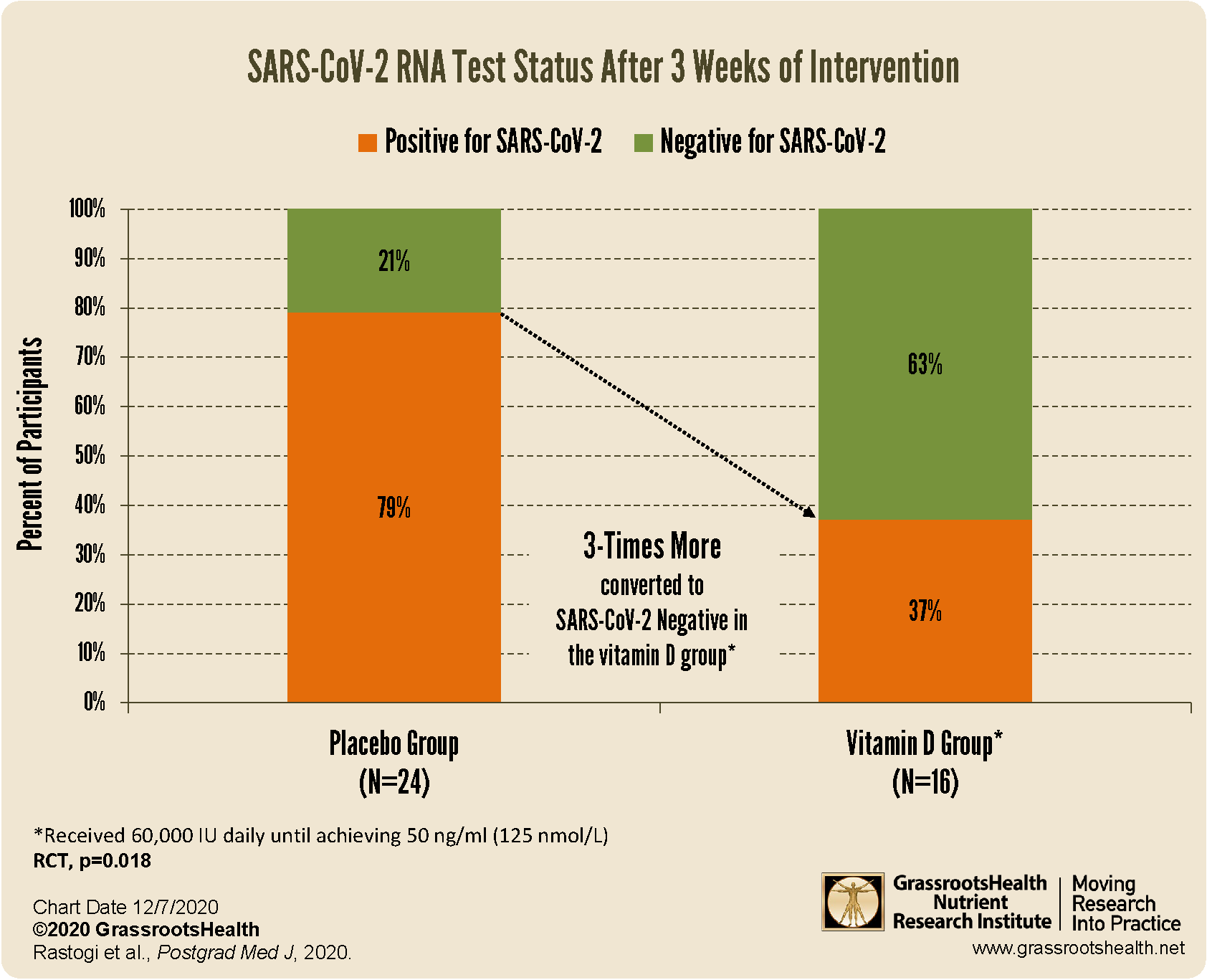 increased viral SARS-CoV-2 RNA clearance
increased viral SARS-CoV-2 RNA clearance
better clinical outcomes among patients with COVID-19
decreased risk of death due to COVID-19
Be sure to educate yourself on the benefits and importance of vitamin D for immune health, and take steps to ensure you and your loved ones are getting enough.
You can review all of the COVID-19 and immune health information we have shared on this page.


